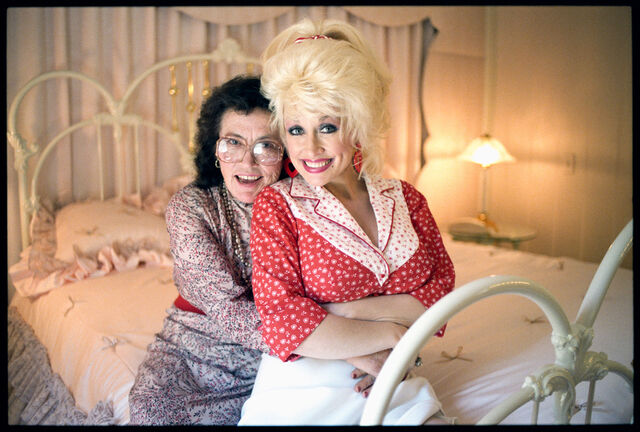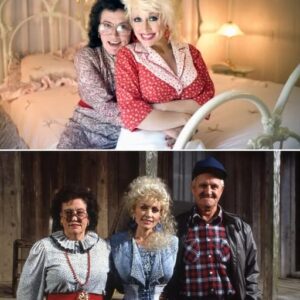Singing on the Porter Wagoner Show might have been the first “official” big break of Dolly Parton’s career, but the groundwork for her decades-long tenure as one of the world’s most beloved and recognized country stars of all time was being laid years before she ever stepped foot on Wagoner’s sound stage. Indeed, before there was Porter—and Dolly—there was Avie Lee.

Avie Lee Owens raised Parton and her ten siblings (one sibling tragically died in infancy) in a one-room cabin in the Appalachian mountains of east Tennessee. In that cramped abode, Owens engaged in a daily habit that instilled in her children a love of music that spanned centuries and entire oceans.
Dolly Parton’s Career Started With Sad Songs In Childhood
When it comes to sad songs about death, lost love, violent crimes, and nature, it doesn’t get much better than traditional Appalachian folk songs. These ballads and odes made their way to the eastern U.S. mountain range from Northern England and Scotland when settlers first arrived in the area in the 17th and 18th centuries. Fiddle, mandolin, banjo, and guitar have all been popular accompanying instruments in this musical tradition. However, the purest way to perform these songs is a capella.

This was the preferred delivery of Dolly Parton’s mother, Avie Lee Owens, who often sang various Appalachian folk tunes to her children. “My mama knew all the old songs brought over from the Old World,” the country star recalled in a 2025 Southern Living cover story.
“She would cry, and we would love it. We’d say, “Mama, tell us again about that girl who loved that boy.’” Notable songs in Owens’ repertoire included “Knoxville Girl,” “Down in the Willow Garden,” and “Bury Me Under the Weeping Willow Tree.” The first two songs are about a narrator killing his one true love. The third is about a woman whose unrequited love compels her to commit suicide.
These songs are hardly what one would consider upbeat musical fare, but for Parton and her many siblings, it was the soundtrack to their childhood in the best way. “Mama was a good singer,” Parton remembered in a 2020 interview on The Late Show with Stephen Colbert. “She would just sing a capella all the time, and so many of those songs were sad. As I say, some of them just plumb pitiful. We used to cry when we’d sing them. Mama would cry, we’d cry. Those old songs were just amazing.”
A Sincere Songwriter Since Childhood
While it’s hard to imagine Dolly Parton anywhere but center stage, she didn’t move to Nashville to become a star. Her main focus was songwriting, and that pursuit came above all else, her own ego included. During her 2020 appearance on The Late Show, she recalled a time when Emmylou Harris implored Parton to give her a song the “Jolene” singer had originally intended to record. Parton eventually agreed and allowed Harris to record it, creating a massive riff between Parton and her then-colleague Porter Wagoner. “That’s when I really knew for sure that I was sincere as a songwriter and that it meant more to me to have someone sing a song that I had written than it was for me to have a record out on that song,” Parton said.
Throughout her prolific career, Parton estimates she’s written upwards of 3,000 songs. She began honing her songwriting chops as a little girl in East Tennessee. “When I was 5 or 6, I wrote a song about a corncob doll,” Parton told Southern Living in January 2025. “Mama wrote it down. She had a trunk full of them. It’s all sacred to me.” The deep connection Parton had to her mother both emotionally and musically makes this touching performance of Parton and her family on the Dolly variety show all the more touching.

Leave a Reply